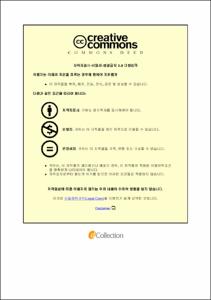아르헨티나 한인소설에 재현된 1.5세대 문화적응 연구
- Abstract
- The state of today's world is walking on ‘the Era of new Nomade’. If we count out the number of people living out from their own country of birth for more the a year to make a virtual nation on their own, we could make ‘the Migrant Nation' and it would be the fifth most populous country. Korea is no exception. The number of overseas Koreans in 2015 reaches approximately 10% of the total population of the peninsula, which exceeded 7million. And the vacancies they leave, to find another country for various reasons like to work, to study or to find a new place to live, are filled with other migrants from all over the world. So now, Korea is one of the frontier of the global tend. We can no more feel proud of being a single-race nation but just as Peter Burke said, today, Korea lives in the ‘cultural hybridity'.
Typically, a culture of a country is naturally learnt through imitation and education and it is the basis of the country's ethnic identity. But if one day, we encounter a new culture, it causes confusion and from this culture shock, the attitude of each individual decides on their acculturation aspects. Especially those who entered into a new culture regardless of their willingness suffer greater confusion than those chosen to emigrate voluntarily. Moreover, teenagers, living an important time strengthening the basis of their life, are pushed in the host culture, into another life of school and peer culture without even knowing the basic communication ; so they have to face a much more severe process of acculturation between the original culture and the host culture.
But for they who have gone through such process have the talent that this globalized age demands. In this process of which several cultures gets scrambled all together, bicultural or multicultural people, without losing their socialization, will stand tall as a new look to live a life of the owner of this era. Moreover, as we will be watching them, we will have a wider field of view to understand and accept the immigrants from different societies, and find a way of true coexistence.
In that sense, we have studied the acculturation patterns of 1.5 generation expressed in Argentine Korean literature which was a bit neglected by geographical disadvantage for being on the other side of the world. In this study was applied Berry's theory according to the acculturation patterns and Bennett's Developmental Model of Intercultural Sensitivity(DMIS) supplemented the description of the pattern.
The acculturation aspects of the 1.5 generation reproduced in Argentine Korean was first shown by the ‘separation' phenomenon from the host culture which was due to the difficulties of intercultural communication. Then, there is the ‘marginalization' phenomenon which is expressed by moral deviation of those who denied their parents' culture and also could not adapt properly to the host culture. And finally, the main phenomenon is the ‘assimilation' in which they identify themselves to the whites and the mainstream culture and rationalize themselves with defensive othernization. As an alternative to the maladaptive cultural aspects, ‘integration' attitude is proposed to be the ‘host' in the host culture.
Meanwhile, the existing research about the acculturation patterns and the adaptation of migrants to the host culture shows that ‘integration' has a positive impact on psychological adaptation, while ‘marginalization' has negative impact and ‘assimilation' and ‘separation' appeared not to have any impact. But through this study, ‘assimilation' and ‘separation' also could see a negative impact on the acculturation process. It means that during the cross-cultural acculturation process, accepting other culture unconditionally shows negative aspect but being exclusive to other culture while centric to the own culture also causes maladaptive cultural aspects. Eventually, as the most positive model in the acculturation process is ‘integration', and this means that when we encounter a different culture, more subjective approach is needed.
The review of the Argentine Korean novel in this regard, despite the many negative phenomenons, now seems to have hopeful signs. It shows well how difficult the adaptation to the other culture was for the 1.5 generation. A completely different culture on the other side of the world, local languages including spanish, open sexual behaviour and the social atmosphere, and freedom and license given half-willingly and half not by the parents living their lives on the frontier of life, the situations they faced in these circumstances instilled a negative thoughts to the local acculturation. The 1.5 generation brought up from the first generation who didn't properly recognize the ‘difference' were meant to take over the same understanding of their parents' generation. But for those who have passed their stormy period of adolescence to adapt to different cultures and settled properly to the culture, they can present themselves clearly for being bicultural and multicultural people.
- Issued Date
- 2016
- Awarded Date
- 2016. 2
- Type
- Dissertation
- Publisher
- 부경대학교 대학원
- Affiliation
- 부경대학교 대학원
- Department
- 대학원 국어국문학과
- Advisor
- 송명희
- Table Of Contents
- Ⅰ. 서론 1
1. 연구의 목적 1
2. 연구사 검토 7
3. 연구 방법과 범위 14
Ⅱ. 문화적응과 1.5세대 19
1. 문화적응의 이론 19
2. 문화이동에 의한 문화충격 28
3. 이중문화 적응모델로서의 1.5세대와 제3문화 아이들 33
Ⅲ. 아르헨티나 한인소설에 나타난 1.5세대 문화적응 양상 43
1. 문화 간 커뮤니케이션과 분리 43
2. 도덕적 일탈과 주변화 56
3. 동화와 통합의 지향 70
Ⅳ. 결론 81
참고문헌 86
- Degree
- Master
- Files in This Item:
-
-
Download
 아르헨티나 한인소설에 재현된 1.5세대 문화적응 연구.pdf
기타 데이터 / 5.47 MB / Adobe PDF
아르헨티나 한인소설에 재현된 1.5세대 문화적응 연구.pdf
기타 데이터 / 5.47 MB / Adobe PDF
-
Items in Repository are protected by copyright, with all rights reserved, unless otherwise indicated.